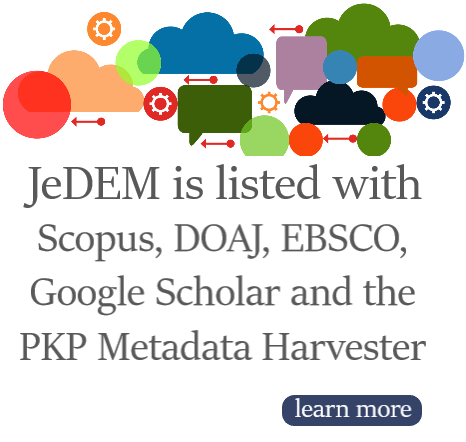eGovernance frameworks for successful citizen use of online services: A Danish-Japanese comparative analysis
DOI:
https://doi.org/10.29379/jedem.v9i2.462Keywords:
Digitization, eGovernment, eGovernance, innovation, Japan, DenmarkAbstract
The use of Information Communication Technology (ICT) by the public sector is often highlighted as a key tool for the transformation of public sector service delivery. Recent literature reviews have highlighted the limited understanding of the role played by governance, inter-governmental decision making and cooperation when introducing ICT solutions and online services to citizens. As part of a larger qualitative, multi-country comparison, this article compares the Danish and Japanese approaches to electronic governance (eGovernance) and inter-governmental cooperation to answer the question: Does a strong governance model and high level of intergovernmental action lead to the successful supply and use of online citizen services? The analysis finds that the two cases support academic arguments in favour of a strong eGovernance model and a high level of inter-governmental cooperation and decision making. The article finds that a political- or public sector-driven and motivated public sector modernisation, a consensus seeking and an inter-governmental approach to eGovernment, trust between actors, and the role of formal and informal are important determinants for success, as illustrated by the continued strength of the Danish governance and joint-governmental cooperation model over the more fragmented Japanese approach. Still, both countries would benefit from a more holistic approach to service delivery, process, and organisational reengineering in order to progress further.
The analysis finds that the two cases support academic arguments in favour of a strong eGovernance model and a high level of inter-governmental cooperation and decision making. The article finds that a political- or public sector-driven and motivated public sector modernisation, a consensus seeking and an inter-governmental approach to eGovernment, trust between actors, and the role of formal and informal are important determinants for success, as illustrated by the continued strength of the Danish governance and joint-governmental cooperation model over the more fragmented Japanese approach. Still, both countries would benefit from a more holistic approach to service delivery, process, and organisational reengineering in order to progress further.
Downloads
Metrics
Downloads
Published
How to Cite
Issue
Section
License

JeDEM is a peer-reviewed, open-access journal (ISSN: 2075-9517). All journal content, except where otherwise noted, is licensed under the CC BY-NC 4.0 DEED Attribution-NonCommercial 4.0 International













